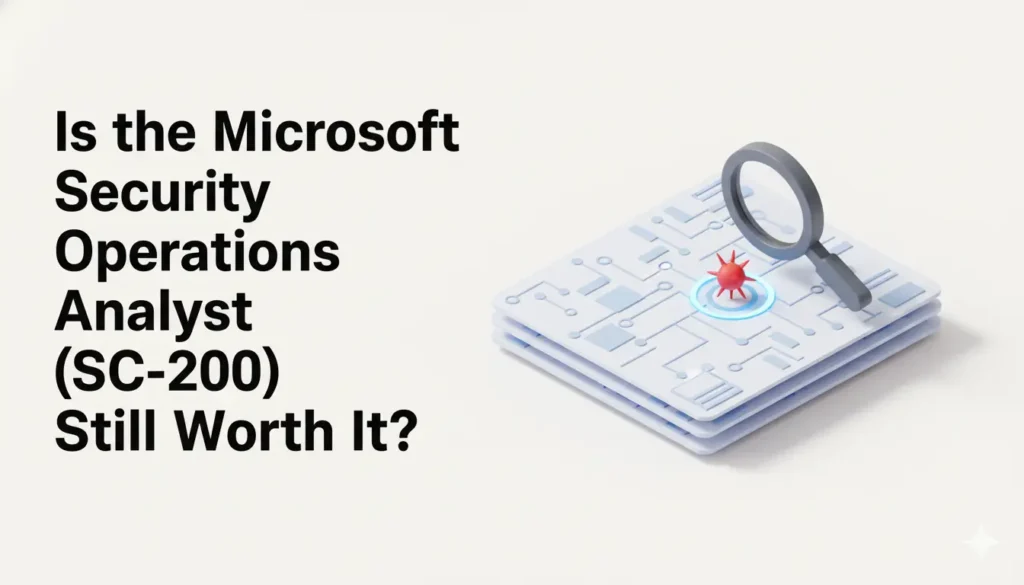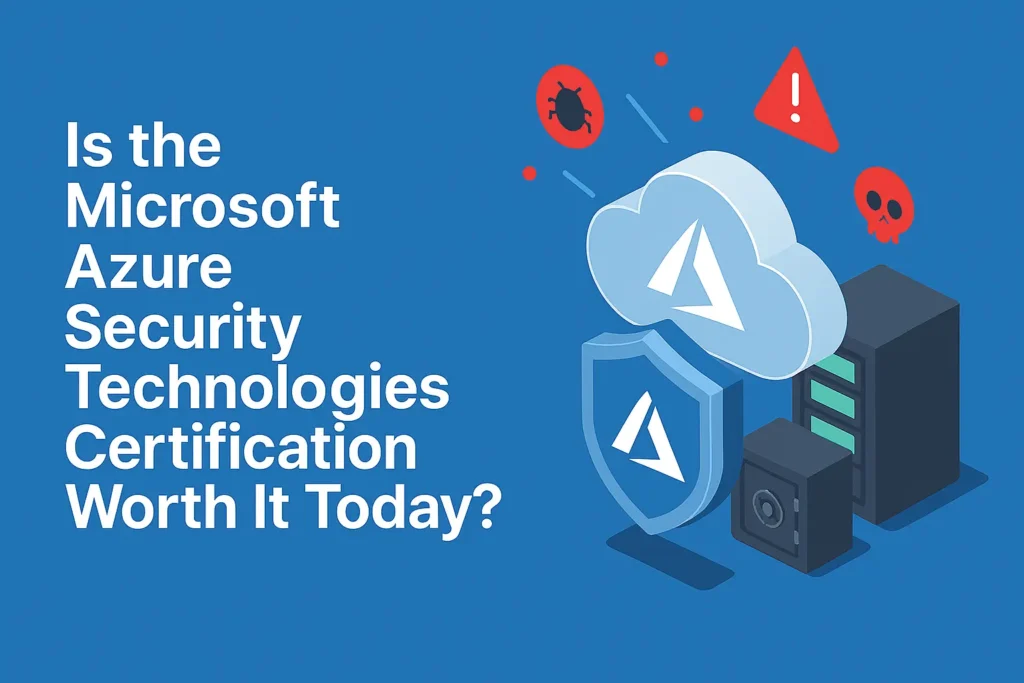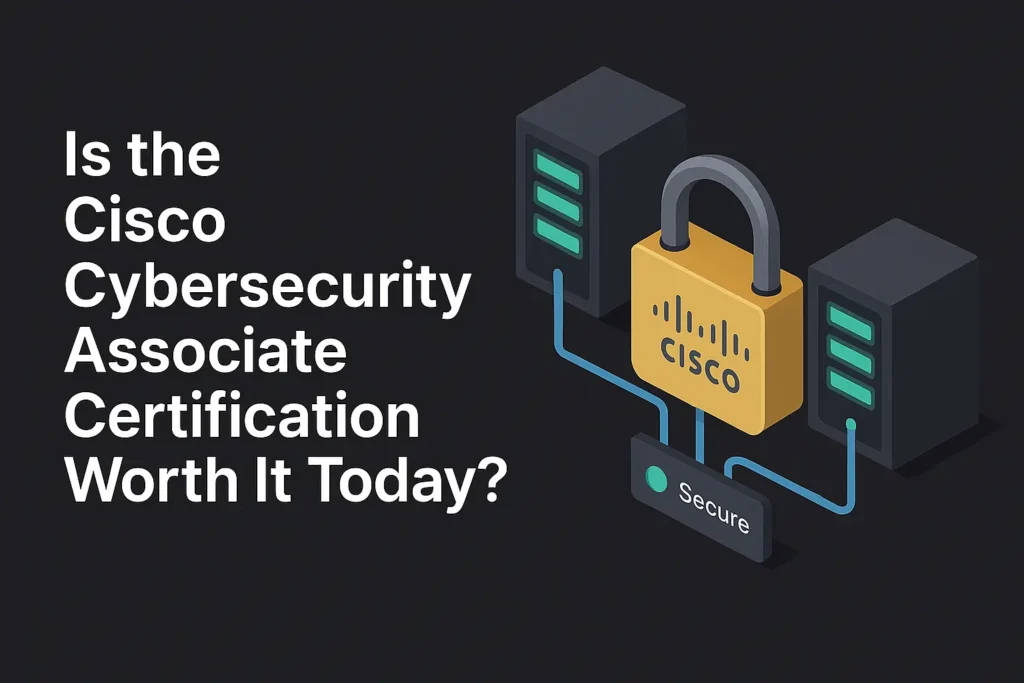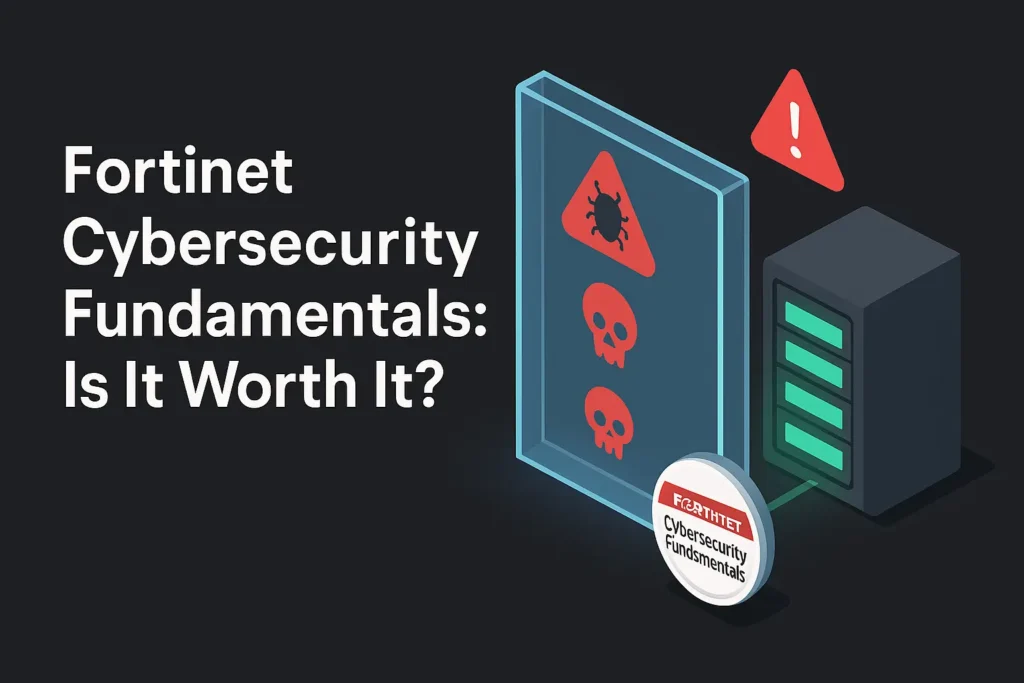What is the Cisco Cybersecurity Associate Certification?
The Cisco Cybersecurity Associate certification (formerly known as Cisco Certified CyberOps Associate) validates essential operational knowledge and skills used in cybersecurity operations and Security Operations Centres (SOCs). Earning the certification requires passing one exam: 200‑201 CBROPS – Understanding Cisco Cybersecurity Operations Fundamentals.
It covers:
- Security concepts and terminology (e.g., malware, zero trust)
- Monitoring approaches across networks, endpoints, and applications
- Host-based analysis techniques
- Network intrusion monitoring
- Security policies and procedures
No formal prerequisites exist, making it accessible for newcomers and experienced IT professionals alike.
Why is the Cisco Cybersecurity Associate Certification So Popular?
- Comprehensive beginner-friendly scope – Offers a clear grounding in cybersecurity operations, ideal for aspirants in technical roles.
- Backed by Cisco’s reputation – Cisco is a globally recognised leader in networking and security, with millions of certified professionals.
- Targeted at SOC roles – Focuses specifically on SOC analyst competencies, a function in high demand.
- Simple pathway – Only one core exam required, plus optional guided resources via Cisco U.
Is the Cisco Cybersecurity Associate Certification Worth It Today?
Yes. Here’s why:
- It builds a strong foundation in cybersecurity operations crucial for entry-level and mid-level roles.
- The certification is constant-proofed: vendors will migrate it into CCNA and CCNP Cybersecurity tracks by 2026.
- It offers competitive salary prospects, especially in Australia’s growing cyber job market.
Pros of Cisco Cybersecurity Associate Certification
✅ Job Availability
Australia’s cybersecurity job market is rapidly expanding. From 2024 to 2029, ICT security specialists roles are projected to grow by 14.2%, more than twice the average across all professions. Organisations from government to financial services are actively hiring for SOC analysts and similar roles.
💰 Salary Potential
Certified professionals globally earn approximately USD 111,000 annually. Cisco-certified cybersecurity experts ranked among Cisco’s top-paying certs, with annual salaries averaging around USD 113,000. In Australia, cybersecurity roles typically pay between AUD 70,000 and AUD 135,000, depending on experience and role seniority.
🌐 Global Recognition
Part of Cisco’s globally trusted certification portfolio—each year Cisco issues over 4 million certifications and nearly all organisations consider Cisco credentials when hiring.
🛤 Career Pathways
- Launches your SOC‑level career—roles like SOC analyst, threat analyst, or incident responder.
- Sets up continuation into Cisco’s Advanced Tracks: CCNA–Cybersecurity, CCNP–Cybersecurity Ops, and higher specialist certifications.
Cons of Cisco Cybersecurity Associate Certification
💸 Cost Considerations
The core exam 200‑201 CBROPS costs USD 300. Additional costs may include:
- Cisco U guided training or instructor-led courses
- Study materials or practice labs
- Exam retake fees
In Australia, currency exchange and optional training add to investment costs.
🌐 Evolving Industry Demands
The job requires ongoing upskilling in areas like:
- AI-driven threat detection
- Zero‑trust architecture
- Cloud and quantum security. Continuous learning beyond the associate level is essential.
🔧 Certification Difficulty
Though vendor entry-level, the certification includes hands-on and scenario-driven questions. Thorough preparation in network traffic analysis, incident detection, and response procedures is key.
Where to Begin Getting Your Cisco Cybersecurity Associate Certification
- Visit Cisco’s Cybersecurity Associate page – Understand objectives and resources.
- Select exam 200‑201 CBROPS – Available via Cisco’s exam partners.
- Use Cisco U learning paths – Guided content, labs, and quizzes accessible online.
- Study and practice – Focus on domains: security concepts, monitoring, host & network analysis, policies.
- Schedule and sit the exam – 120 minutes, pass/fail, with results typically available within 48 hours.
- Earn your badge – Receive a digital badge to showcase on LinkedIn or resume.
Key Topics Covered in the Cisco Cybersecurity Associate
- Security concepts – Threat types, vulnerability vs exploit, zero-trust principles
- Security monitoring – Tools and techniques for alerting and threat detection
- Host-based analysis – Endpoint logs, file systems, evidence attribution
- Network intrusion analysis – Traffic inspection, log review, regular expressions
- Security policies & procedures – Incident response plans, governance, compliance
✅ FAQ Section
Is a Cisco Cybersecurity Associate enough to get a job?
Yes—for entry-level roles in SOCs, junior cybersecurity analyst positions, or IT security operations roles. It’s recognised and well‑respected by employers.
Is it worth it in Australia?
Absolutely. Australia’s cybersecurity landscape has high demand, increasing budgets, and a national push for digital resilience.
Does it pay well?
Entry‑level salaries range from AUD 70k to 135k; globally it’s ~USD 111k to 113k.
Is it very difficult?
Moderately. You’ll need practical knowledge and analytical skills. Use Cisco U, labs, practice tests to prepare.
Is the certification stressful?
Stress levels are reasonable. The online or in-person exam gives room to prepare thoroughly.
How many fail?
Cisco does not publish exact failure rates. With good preparation and resources, most candidates pass on first or second attempt.
The Future of Networking and Cybersecurity Jobs in Australia
- 14.2% growth for ICT security roles from 2024–2029.
- Cybersecurity market revenue in Australia set to exceed USD 4.2 billion in 2025, with a projected CAGR of 4.4% through 2030.
- Employers increasingly investing in AI‑supported security, zero-trust frameworks, and cloud resilience.
- Ongoing digital transformation means sustained demand for SOC analysts, incident responders, and security engineers.




